News

Cricket Fever Drives Tourism Surge as Indian Fans Flock to Colombo
A wave of cricket enthusiasm surrounding the highly anticipated India–Pakistan T20 clash on February 15 has triggered a significant boost in tourism arrivals to Colombo, with thousands of Indian fans travelling to Sri Lanka ahead of the match.
According to the Sri Lanka Tourism Development Authority, 18,819 Indian visitors entered the country between February 1 and 12, making India the leading source market and accounting for 15% of all tourist arrivals during the period. Overall, Sri Lanka recorded 124,460 international arrivals within those twelve days, with February 12 alone seeing the highest single-day figure of 12,731 tourists—three days before the blockbuster encounter between India and Pakistan.
The surge in demand pushed travel costs sharply upward. Travel agencies reported that airfares from Chennai—normally priced between $200 and $250 for the 90-minute flight—spiked to as much as $623 to $756. Flights from Delhi also rose by more than 50%, with one-way fares averaging around $666 in the days leading up to the match.
Hotels across Colombo experienced a parallel boom. Luxury properties reported near-full occupancy on match weekend, with some premium rooms priced close to $1,000 per night—dramatically higher than the seasonal average of roughly $150.
Ticket demand reflected the same intensity. The 35,000-seat stadium sold out completely through the International Cricket Council platform, while more than 88,000 ticket requests were logged, underscoring the immense regional interest generated by one of cricket’s most celebrated rivalries.
Tourism stakeholders say the influx demonstrates how major sporting events can rapidly stimulate visitor arrivals, airline traffic, and hotel occupancy, positioning Sri Lanka to capitalise on future international tournaments as a catalyst for tourism growth.

2025 O/L Examination Begins Today with Over 451,000 Candidates
The 2025 G.C.E. Ordinary Level (O/L) Examination gets underway today (17), with hundreds of thousands of students across Sri Lanka appearing for the national examination.
According to the Department of Examinations, a total of 451,463 candidates will sit for the examination, which is being conducted at 3,545 examination centres across the country. The examination period will continue until February 26, 2026.
Commissioner General of Examinations, A.K.S. Indika Kumari Liyanage, advised candidates to arrive at their assigned examination venues at least one hour before the scheduled starting time to ensure smooth proceedings.
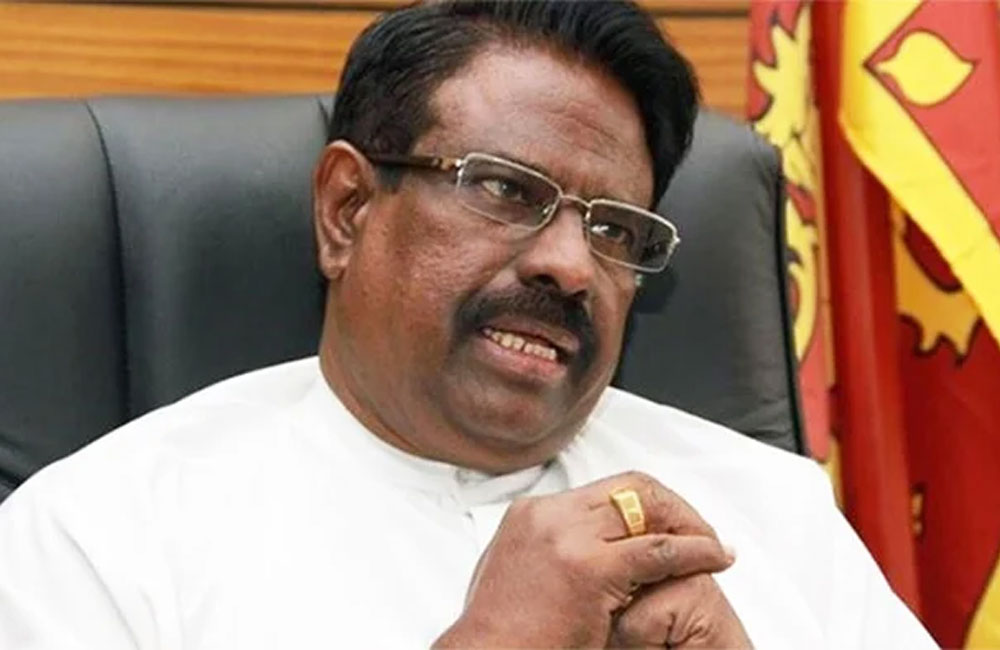
Former Minister Vijith Wijayamuni Soysa Appears at FCID
Former Minister Vijith Wijayamuni Soysa reported to the Financial Crimes Investigation Division (FCID) earlier today (17).
Authorities have not yet released details regarding the reason for his appearance or whether it is linked to an ongoing investigation. Further information is expected to emerge as inquiries continue.

GMOA to Halt Health Data Reporting as Trade Union Action Escalates
The Government Medical Officers’ Association (GMOA) has decided to suspend the submission of health-related data beginning February 18, as part of an escalation of its ongoing trade union measures.
The association said the decision was taken due to what it described as the government’s inadequate response to issues raised by the union. As part of the action, GMOA members will no longer provide reports to the Ministry of Health on community health programs conducted under the guidance and supervision of Medical Officers of Health.
In addition, the GMOA announced that its members will withdraw from supervisory responsibilities involving personnel working in community-based health services.
The association stated that these steps form part of its broader efforts to pressure authorities into addressing its demands.
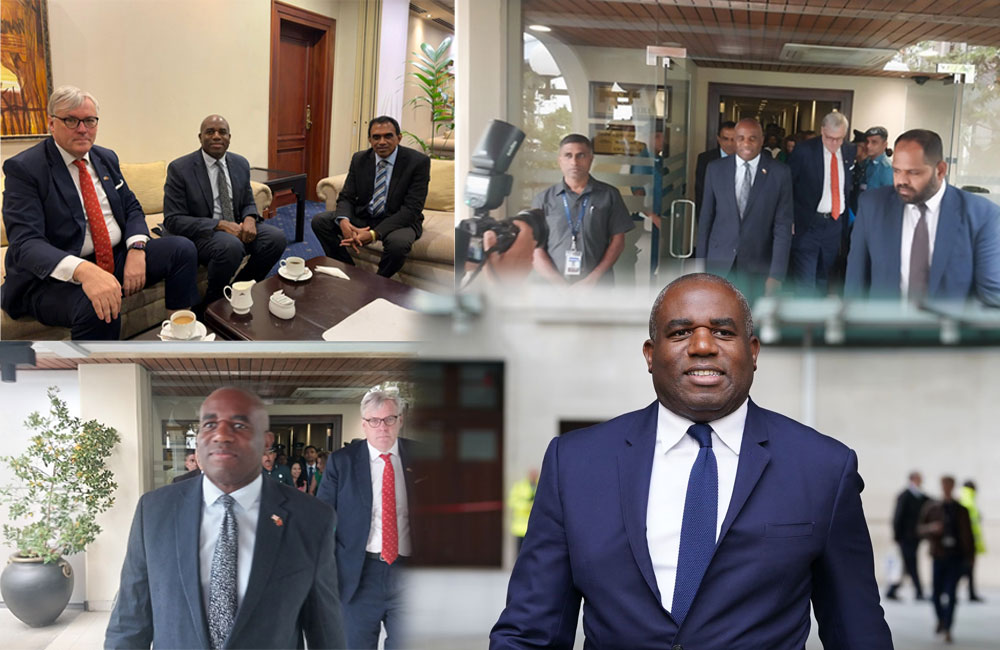
UK Deputy Prime Minister David Lammy Arrives in Sri Lanka for Official Visit
David Lammy, Deputy Prime Minister of the United Kingdom, arrived in Sri Lanka a short while ago, marking the start of his official visit to the country.
Welcoming the senior UK official, Andrew Patrick, the UK High Commissioner to Sri Lanka, shared a message on X, formerly known as Twitter, noting that this is Lammy’s first visit to the island.
The visit is expected to further strengthen diplomatic ties between the UK and Sri Lanka. During his stay, Lammy will also observe the UK’s humanitarian assistance efforts provided in response to Cyclone Ditwah, which caused significant damage across several parts of the country last year.
He is also scheduled to hold discussions with President Anura Kumara Dissanayake and meet with humanitarian partners involved in delivering UK-funded support to affected communities.
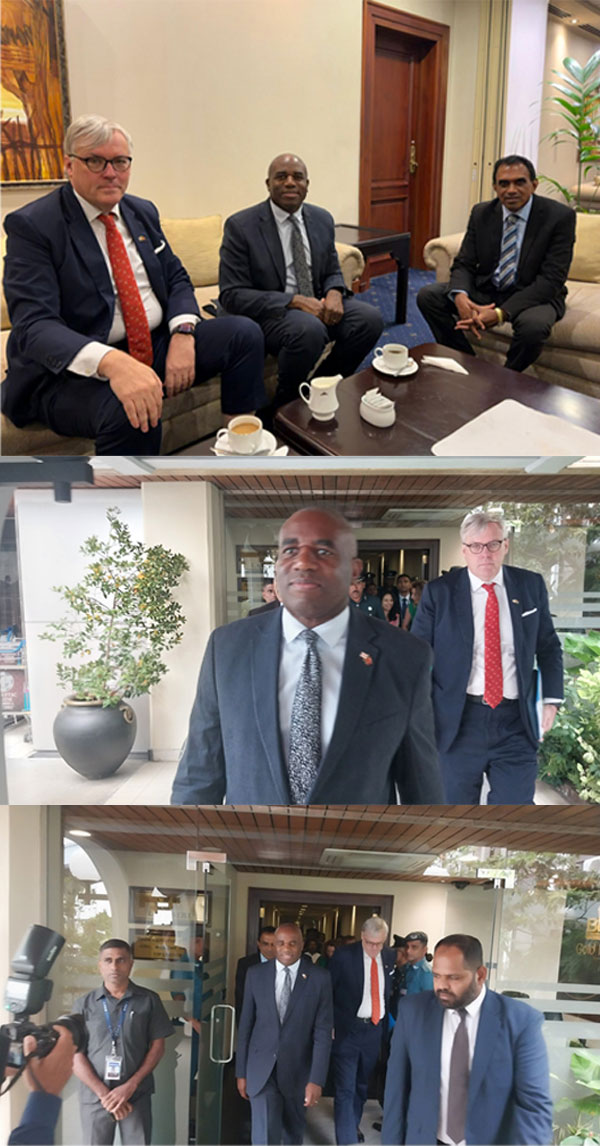
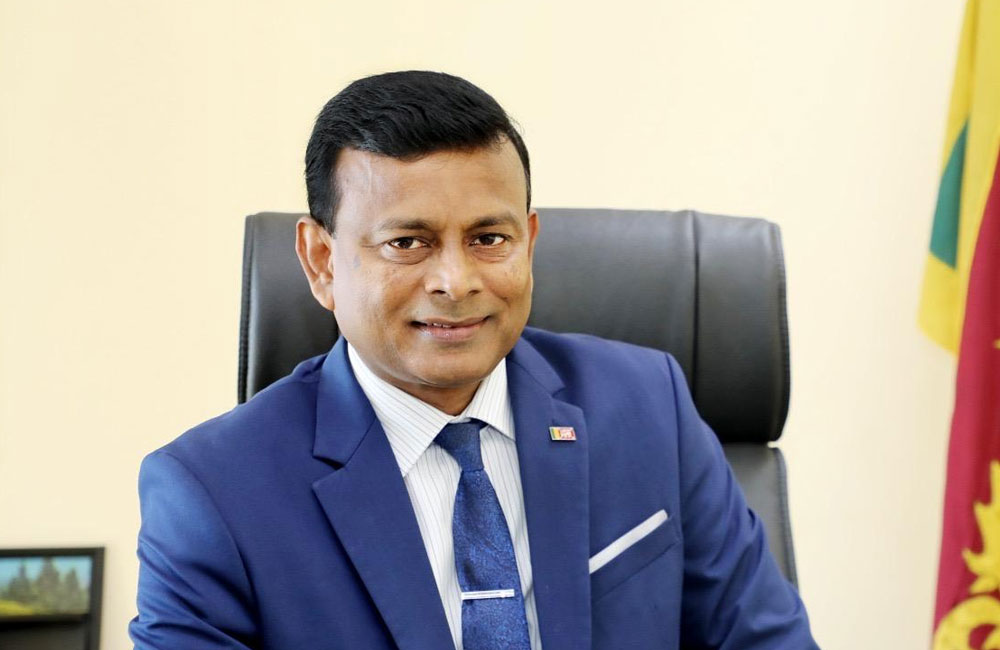
Prabath Chandrakeerthi appointed President’s Chief of Staff
Prabath Chandrakeerthi has been appointed as the new Chief of Staff to President Anura Kumara Dissanayake.
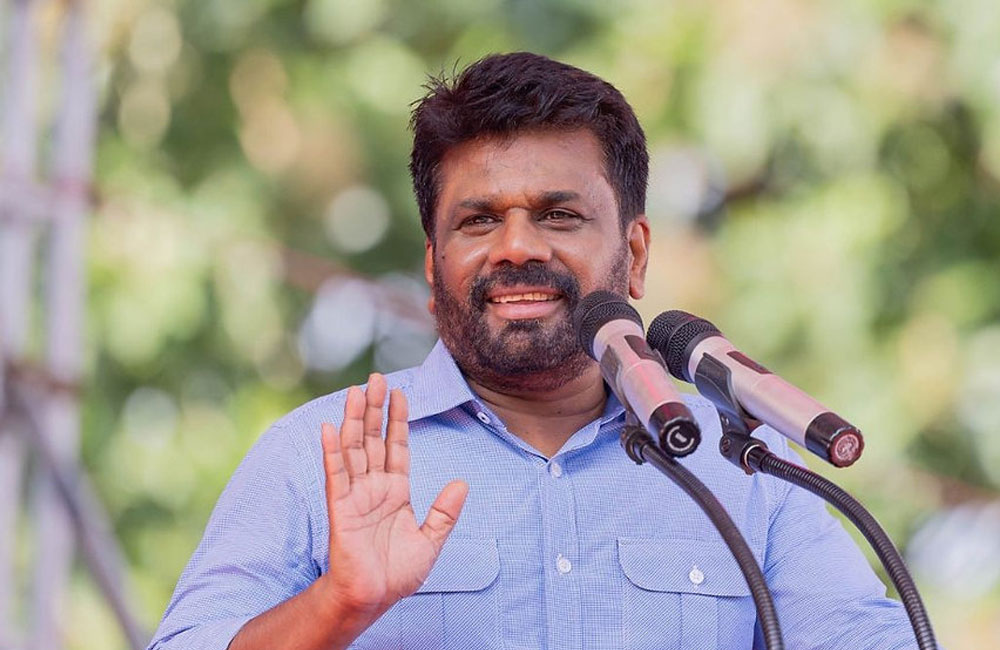
President Dissanayake Departs for India to Attend Global AI Summit
President Anura Kumara Dissanayake is scheduled to leave for India today (17) to attend the India AI Impact Summit 2026, which will be held in New Delhi.
The Sri Lankan leader will participate in the summit at the invitation of Indian Prime Minister Narendra Modi. The event, hosted under Prime Minister Modi’s patronage, is aimed at encouraging the ethical and responsible development and application of artificial intelligence for the benefit of society.
According to the President’s Media Division, President Dissanayake is scheduled to deliver a speech at the summit on February 19. The five-day event will bring together Heads of State from 20 countries, along with representatives from over 45 nations.
Key discussions will center on the future direction of artificial intelligence and its potential role in addressing major global issues. During his visit, President Dissanayake is also expected to hold bilateral meetings with Prime Minister Modi and several other international leaders to strengthen diplomatic and strategic cooperation.
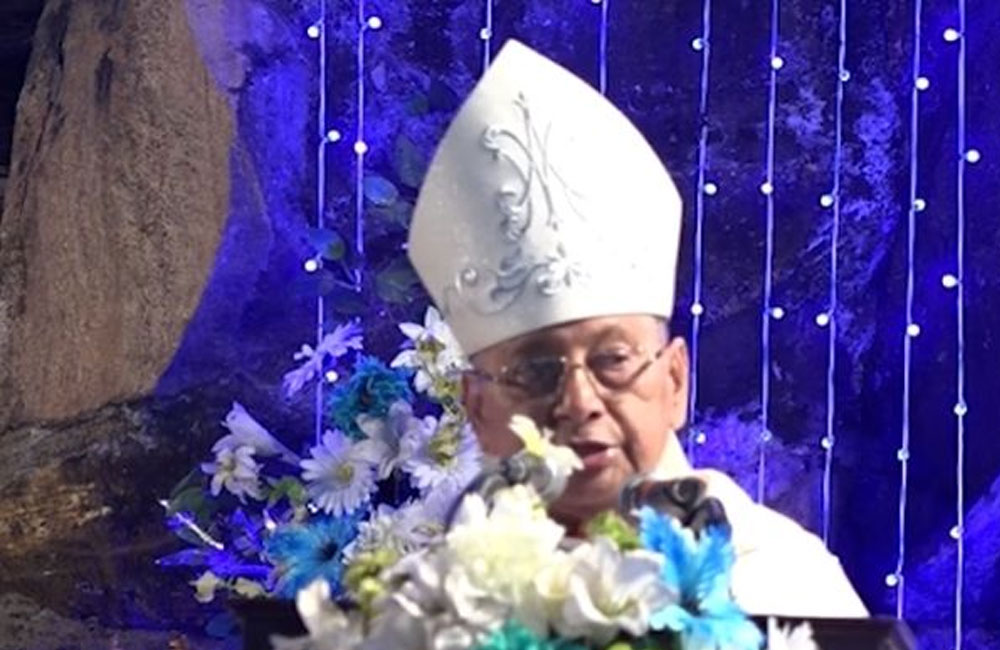
Cardinal Ranjith Raises Alarm Over Declining Family Stability in Sri Lanka
The Archbishop of Colombo, Malcolm Ranjith, has voiced serious concern over what he described as the gradual breakdown of family life in Sri Lanka, cautioning that the weakening of marriage poses significant risks to the country’s social fabric.
He made these remarks while addressing worshippers during the annual feast at Our Lady of Lourdes Church on Saturday. The Cardinal warned that the deterioration of family unity is spreading rapidly, comparing it to a dangerous and widespread social issue.
Highlighting the importance of the family as the foundation of society, he stressed that the overall well-being of communities depends on stable and committed households. He noted that many young couples today enter marriage based on temporary emotions or attraction, without fully understanding the long-term responsibilities involved.
Cardinal Ranjith also cautioned that some people no longer view marriage as a lifelong commitment, but rather as something easily abandoned. He emphasized that strong marital bonds are essential for creating stable families and maintaining a healthy society.
Referring to the teachings of the Catholic Church, he said faithful and committed family life plays a vital role not only in strengthening society but also in preserving the spiritual integrity of the Church. His comments come at a time when concerns are growing over changing social attitudes and the future of family life in Sri Lanka.
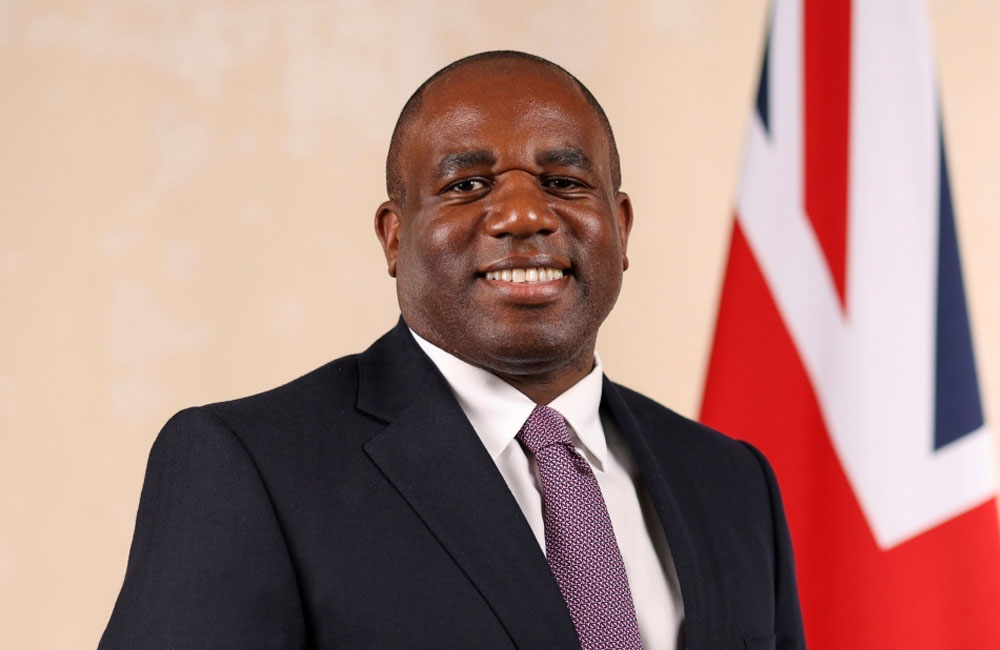
UK Deputy PM David Lammy Arrives in Sri Lanka for Official Visit
David Lammy, Deputy Prime Minister of the United Kingdom, is scheduled to arrive in Sri Lanka today (17) for an official visit aimed at reinforcing relations between the two nations.
The visit is expected to highlight the continued partnership between the UK and Sri Lanka, while also providing an opportunity for Lammy to observe the UK’s humanitarian assistance following the damage caused by Cyclone Ditwah.
During his stay, Lammy is set to meet with President Anura Kumara Dissanayake to discuss a range of matters, including economic collaboration, reconciliation efforts, humanitarian concerns, and Sri Lanka’s involvement in the Global Charter on Children’s Care Reform, which promotes family-based care and child protection worldwide.
In addition, the Deputy Prime Minister will meet with humanitarian organizations involved in delivering UK-supported relief to communities affected by the cyclone, which caused extensive destruction across parts of the country late last year.

Sri Lankan Rupee Remains Stable Against US Dollar at Commercial Banks
The Sri Lankan Rupee showed marginal strengthening while mostly holding firm against the US Dollar across major commercial banks today (Feb 16), compared to last Friday’s rates.
At Seylan Bank, the dollar’s buying and selling rates were unchanged at Rs. 306.45 and Rs. 311.20, respectively. Similarly, NDB Bank reported no variation, maintaining its buying rate at Rs. 306 and selling rate at Rs. 312.50.
Meanwhile, People’s Bank recorded a slight dip in the buying rate, which moved from Rs. 305.79 to Rs. 305.74, while the selling rate remained steady at Rs. 312.48.
Exchange rates at Commercial Bank of Ceylon also remained stable, with the buying rate at Rs. 303.86 and the selling rate at Rs. 312.25. Likewise, Sampath Bank kept its rates unchanged, quoting Rs. 306 for buying and Rs. 312.50 for selling.
Overall, the Rupee’s performance reflects relative stability in the foreign exchange market, with only minimal adjustments observed among major banking institutions.
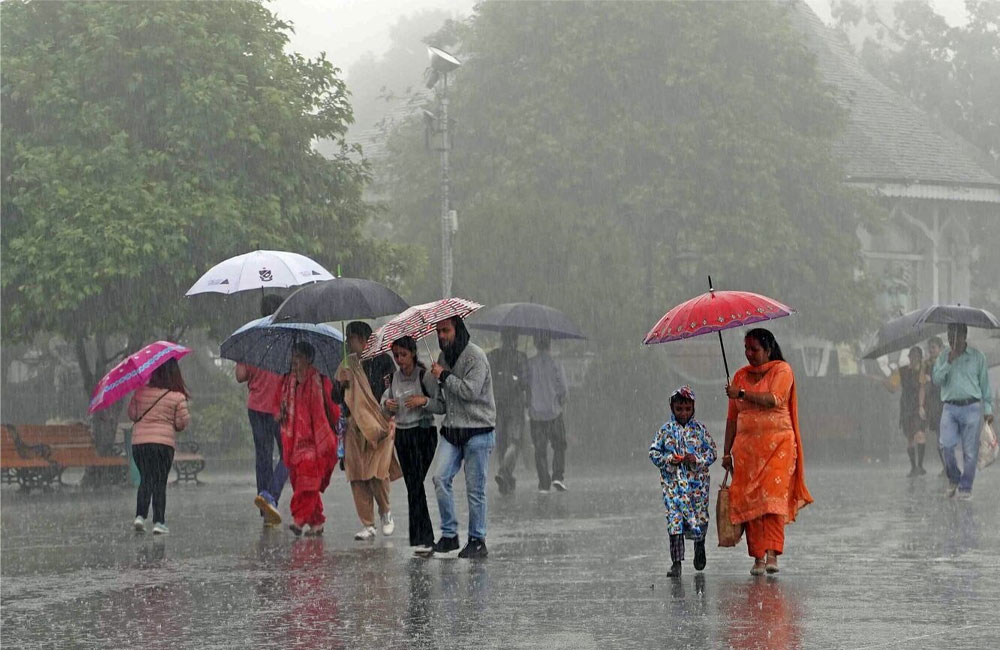
Rainfall Expected to Increase Across Several Provinces in Coming Days
The Department of Meteorology has forecast an increase in rainy conditions across several parts of the country in the coming days starting today (17).
According to the forecast, intermittent showers are expected in the Northern, North Central, Central, Uva, and Eastern provinces, as well as in the Hambantota district. Some areas in the Central, Uva, and Eastern provinces and Polonnaruwa district could experience fairly heavy rainfall exceeding 75 mm.
In other parts of the island, showers or thundershowers are likely to develop at multiple locations after 1.00 p.m., with some areas also receiving rainfall of up to 75 mm.
Misty weather conditions are anticipated during the early morning hours in parts of the North Central, Sabaragamuwa, and Central provinces, along with the Galle and Matara districts.
The public has been advised to remain cautious and take necessary safety measures, particularly due to the risk of localized strong winds and lightning associated with thundershowers.
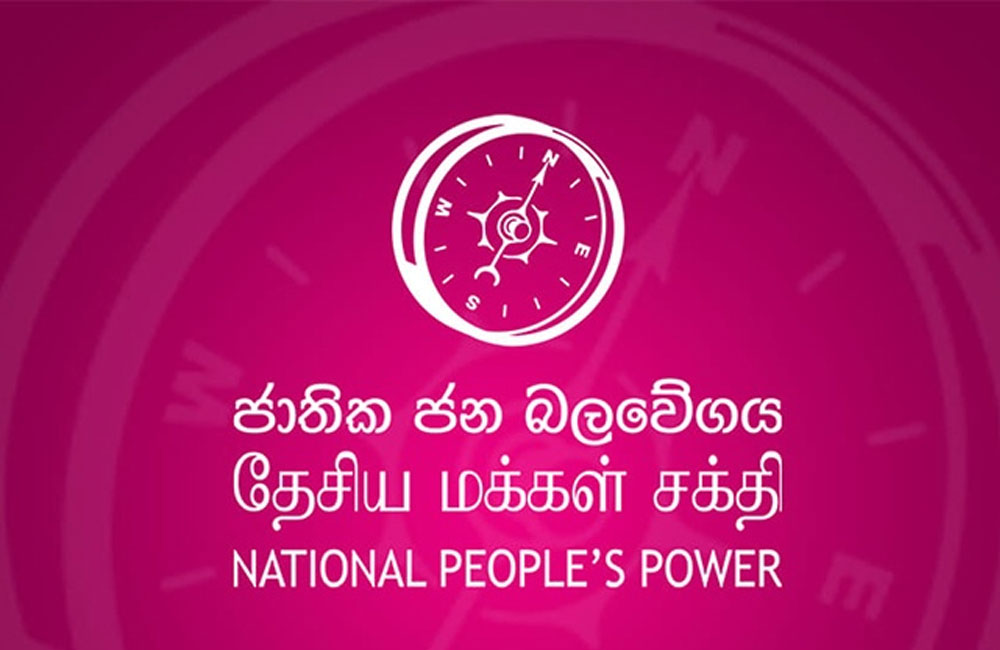
NPP-Affiliated Lawyers Condemn Killing of Attorney and Wife, Urge Swift Justice
The National People’s Power Lawyers’ Association has strongly denounced the fatal shooting of Attorney-at-Law Buddhika Mallawaarachchi and his wife, urging authorities to take immediate steps to ensure justice and strengthen public safety.
In a statement issued on February 15, the association expressed profound grief over the deaths of the couple, who were killed in a shooting on February 13. The lawyers described the attack as a brutal act of violence against two civilians and stressed the urgent need to address what they called lingering elements of a violent “para-state” culture.
The group warned that such acts of violence could target various individuals, including journalists, law enforcement officers, members of the judiciary, and legal professionals. They emphasized that safeguarding citizens and upholding the rule of law remains a fundamental responsibility of the state.
The association called on authorities to expedite investigations, take preventive measures against further violence, and ensure that those responsible are brought before the law without delay. They also expressed confidence that the government would take the necessary steps to protect the safety, dignity, and rights of all citizens.Police investigations into the incident are currently ongoing.
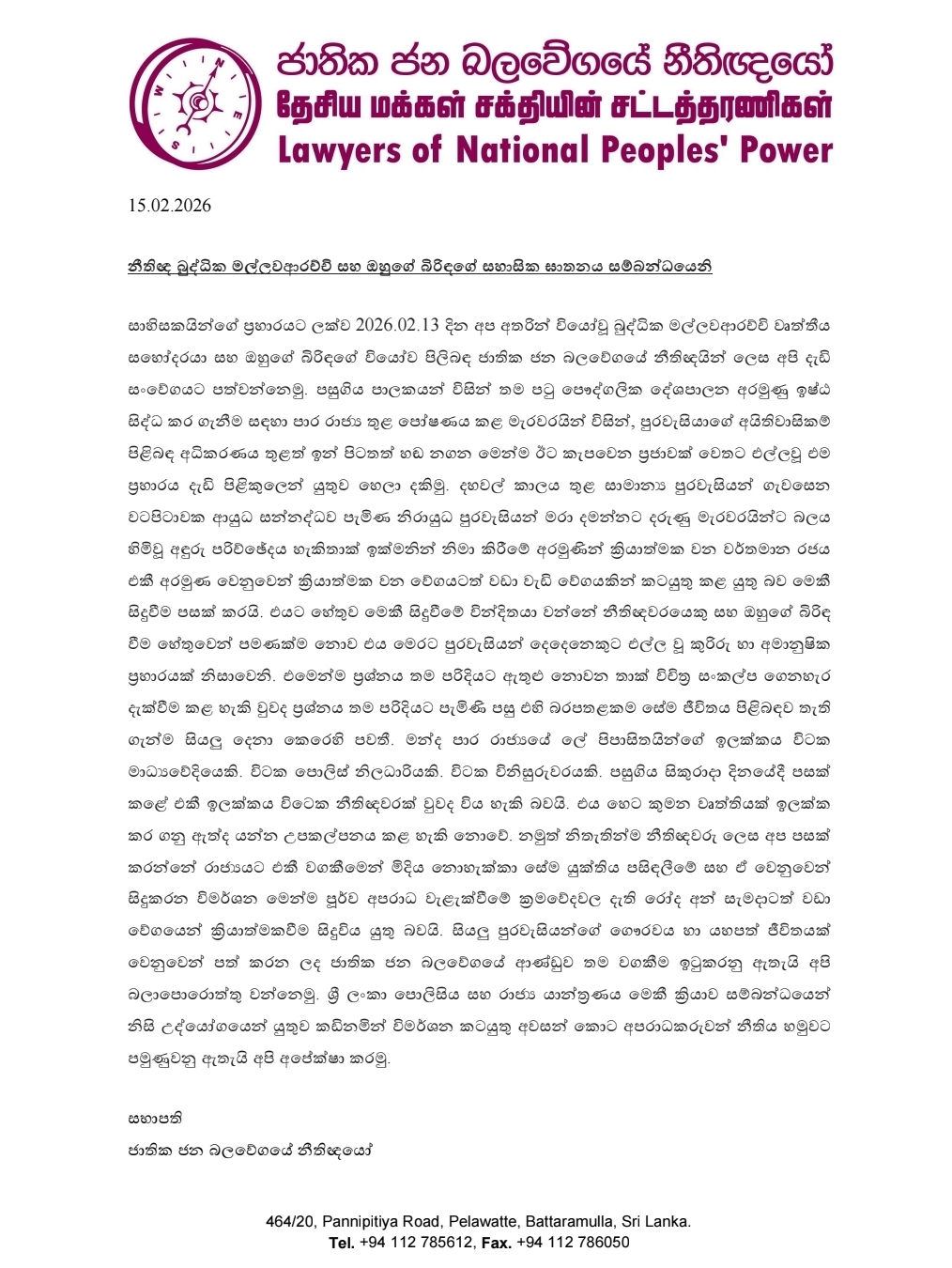
Page 11 of 681